#colonel Lynch
Text

#John Hannibal Smith#the a-team#colonel Lynch#the look on his face just seconds before he has Lynch stuffed in a TRUNK XDD#he's such a smug guy XDD#george peppard#honestly I love it and him#the a team#Templeton Peck#BA Baracus#amy amanda allen#Hm Murdock#my edits#my screencaps
133 notes
·
View notes
Conversation
Colonel Lynch: This kind of idiocy will not be tolerated.
Hannibal: Is there another kind of idiocy you would be more comfortable with?
12 notes
·
View notes
Text
Murder at the Tudor Hall: a Cluedo fan casting
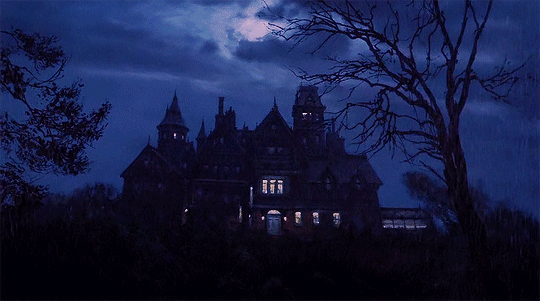
Ten characters, nine weapons, ten rooms, one murder. Let's play.
Giancarlo Esposito - Mr. Boddy, the victim, owner of luxury Boden Black Hotel.


The suspects:
Daniela Melchior - Miss Scarlett, the femme fatale, cunning and attractive.



Tony Dalton - Colonel Mustard, the retired military officer, who is known to sleep with a revolver under his pillow.
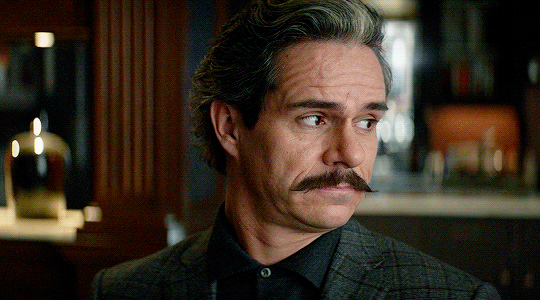


Kat Dennings - Mrs. White, housekeeper and cook of Tudor Hall, with an eye squint from spying in keyholes.



David Lynch - Reverend Green, a hypocritical preacher who wavers when the subject is murder.

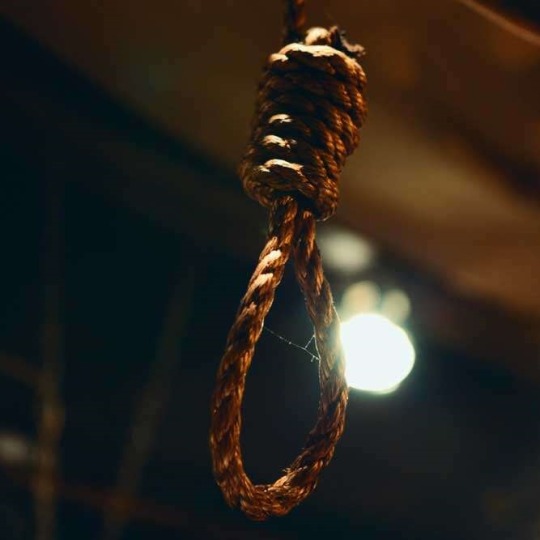
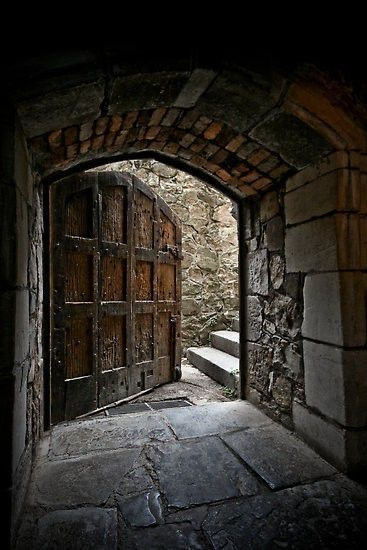
Halle Berry - Mrs. Peacock, a successful and tenacious attorney who knows how to command a room, court or otherwise.



Jude Law - Professor Plum, an archaeologist and Egyptologist who formerly worked as the curator of the British Museum before he was fired.
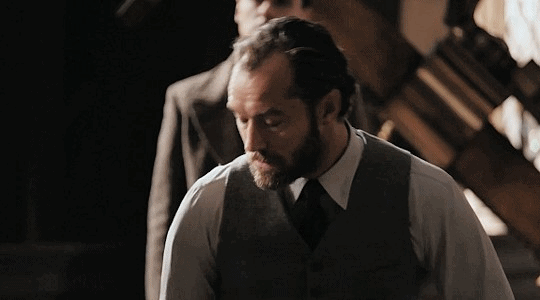
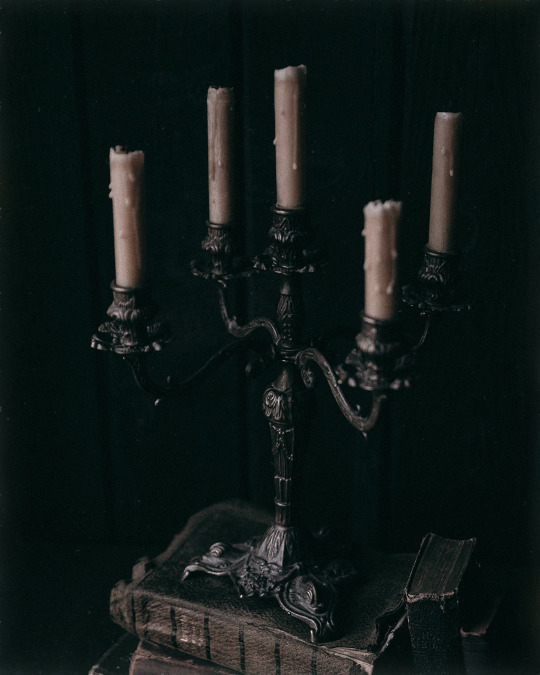

Karen Fukuhara - Dr. Orchid, a biologist who specializes in plant toxicology.


Lily-Rose Depp - Yvette, a young French maid at Tudor Hall.

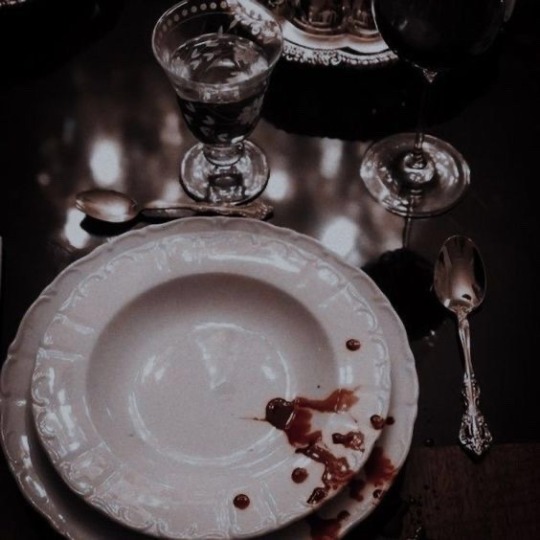

Ricky Gervais - Wadsworth, the butler at Tudor Hall.


Who has done it?
Blackram Hall: whodunit, murder mystery, hardboiled, pulp, crime, thriller, italian giallo, noir and neo-noir, detectives and serial killers, spy stories, vintage, manor houses, art, life and death.
Avatar pic by Mitchell Turek
#What do you mean? Murder?#Clue#Cluedo#murder mystery#detective stories#whodunit#Anthony E. Pratt#Waddingtons#Agatha Christie#Hasbro#Parker Brothers#Winning Moves Games#Giancarlo Esposito#Mr. Boddy#Daniela Melchior#Vica Kerekes#Miss Scarlett#Miss Scarlet#Tony Dalton#Colonel Mustard#Kat Dennings#Mrs. White#David Lynch#Reverend Green#Halle Berry#Mrs. Peacock#Jude Law#Professor Plum#Karen Fukuhara#Dr. Orchid
5 notes
·
View notes
Text
Two weeks into a military trial over the killing of more than 50 civilians in eastern DR Congo, the circumstances of how soldiers came to open fire are still unclear.
Who gave the order, at what point and why did Congolese soldiers shoot to prevent an anti-UN protest in the city of Goma are key but as yet unanswered questions.
Witnesses -- some taking the stand with their faces masked by cagoules to hide their identity -- have cast doubt on the official version of events.
In a region long plagued by violence in the volatile east of the Democratic Republic of Congo, the incident has raised tensions.
On August 30, soldiers stopped a religious sect from holding a demonstration against the presence of United Nations peacekeepers in the DRC.
At least 57 people were killed, according to Interior Minister Peter Kazadi.
Less than a week after the crackdown, six soldiers including two officers of the elite Republican Guard went on trial charged with crimes against humanity and violating orders.
Several ministers visited the scene of the killings while the government has promised that justice will be done.
Kazadi, among others, has said the Republican Guard intervened after the lynching of a police officer by members of the religious sect.
Witnesses -- including two army colonels but also sect members and local residents -- however say the operation began before the police officer died.
At least five people were killed in the religious sect's radio premises, but most died in its church, according to witness testimony.
At the time that soldiers were heading towards the church, "the police officer was not yet dead", a military intelligence officer told the court.
A few days after giving his testimony, the witness was in hospital due to a "poisoning", the court heard.
On one point, however, everyone agrees.
Before the shooting began, talks between the army and the sect were under way and progressing calmly.
Four people had been chosen to be the emissaries of a message to be delivered to the UN mission.
In the middle of the negotiations however, soldiers opened fire on unarmed sect members.
It remains to be established whether Mike Mikombe, one of the accused Republican Guard officers who has denied the charges, gave the order to shoot.
And, if he did, whether he was following orders or acted on his own initiative.
He suggested in court that he had been misled by an operational order identifying the sect members as proxies of M23 rebels and the Rwandan army.
The M23 has captured swathes of territory in North Kivu province since 2021 -- one of several militias holding sway over much of the region despite the presence of peacekeepers.
Independent UN experts, the Kinshasa government and several Western nations including the United States and France accuse Rwanda of actively backing the Tutsi-led M23 -- claims that Rwanda denies.
More than 140 civilians including around 30 minors were arrested during the August 30 army operation.
They were accused of participation in an insurrectional movement, conspiracy and murder.
According to one mother, who is still trying to see her 17-year-old son being held in Goma prison, soldiers took him from his home, accusing him of being a rebel.
She has begged authorities to free him so he can go back to school.
The treatment of the victims has also sparked tension.
Families were only able to bury the dead late on Monday after the bodies were left decomposing in a Goma military hospital for 20 days.
Relatives were banned from visiting the morgue to identify their loved ones until September 12.
The trial is due to continue on Wednesday after a two-day break.
4 notes
·
View notes
Text

In 2013, images appeared in Western media of what appeared to be an AH-64 Apache attack helicopter being transported by an semi at a rest stop in China.
Rumors swirled about the aircraft - was it the Apache that had been shot down at the 2003 Battle of Karbala? Was it a perfect clone of the aircraft made for the People's Liberation Army? Was it an Egyptian Apache shot down by militants in the Sinai and later smuggled to China? None of these, it turns out.
There is no evidence that China has ever successfully captured or purchased an AH-64, intact or damaged. It is true that a Apache helicopter was forced down due to hydraulic failures at the Battle of Karbala in 2003, resulting in the capture of both the pilots and the airframe by Iraqi militia forces. The Apache's crew, David Williams and Ronald Young, were taken to Baghdad and held alongside other captured American service members, including Jessica Lynch. They were rescued by special forces soldiers on April 13th, 2003, in the first successful POW rescue mission since the Second World War. Their aircraft, 99-5135, was visually in relatively good shape when captured by Iraqi forces and shown on Iraqi state television. However, following international news media coverage, its location was revealed, subsequently leading to its destruction by coalition strike aircraft. This eliminates the possibility that the Apache on display above is 99-5135.


As for the Sinai theory, many netizens posited online that the aircraft was Egyptian in origin thanks to the particular hue of the paint. There is no indication that VNSA's in the Sinai have ever successfully shot down an Egyptian Apache (much less contacted a foreign government and successfully smuggled it out of the country without interference from Egypt or the United States.) VNSA's in the Sinai do possess MANPADS, however, and have reportedly a downed an Egyptian government Mi-8/17.

In reality, this aircraft is a type of clone, albeit a non-flying one. This particular replica arrived at the China Air Defense Expo Park (中国防空博览园) in Ningbo, China in mid-2011 according to local media. News articles about the arrival very clearly state that the Apache is a replica. Images of its arrival show it on the same trailer from the news articles published in 2013. It is likely that the images shown in the 2013 articles were taken in 2011 and simply surfaced two years later in a popular article by Western aviation outlet The Aviationist. The Ningbo Apache is is on display near the entrance to the park, next to some conventional AAA guns, although its display area has been renovated a few times since its arrival. Recent images from the park show the Ningbo Apache in a state of disrepair, likely suffering damage from accelerated rust due to its proximity to the Pacific. Notably, Ningbo's Air Defense Expo Park is also home to a full scale replica of the PLAAF's own Chengdu J-10 multirole fighter.




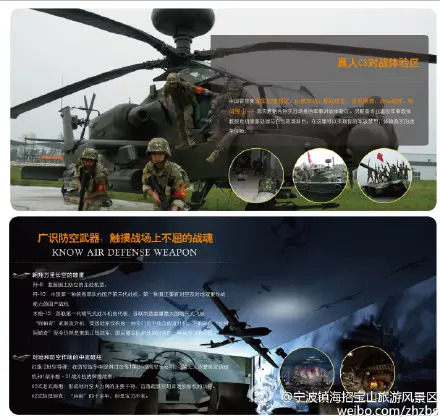
It is likely that the Ningbo Apache shares its lineage with a similar replica at the China Aviation Museum (中国航空博物馆). This replica was built by a PLA colonel, Meng Yifeng, in his spare time according to a plaque on site. While not a perfect replica of the Apache, it is visually quite close. Unlike the Ningbo Apache, the replica at the China Aviation Museum lacks a (replica) AN/APG-78 Longbow radar system. The aircraft is now on display in the cavern that once served as an underground aircraft hangar during the facility's life as Shahezhen Airbase. Why the Chinese government has seen fit to display these replicas so prominently is unclear, as they are non-flying, imperfect clones of the American gunship. Neither replica is claimed to represent an actual Apache, captured or otherwise.




#next time will not be a helicopter i promise#military#military history#people's liberation army#china#ah 64#osint#helicopter#us army#history
29 notes
·
View notes
Text
🎵The Insulindian Miracle
[cw: discussions of sexual assault.]
2. Let the lieutenant handle it.
KIM KITSURAGI - "*If* there is an investigation it will be part of an ongoing operation -- subject to confidentiality. I am sure you understand."
+1 Reputation
JOYCE MESSIER - "Of course, detectives," she says, her tone more cautious suddenly. "In any case, you've held up your end of our arrangement. I trust you with the rest. Now it's my turn..."
"I wouldn't normally break protocol like this, but the situation demands it. If you don't solve this murder I'm afraid we may have a blood bath on our hands."
HALF LIGHT [Easy: Success] - The words *blood bath* sound cold in her mouth. They taste of iron and strawberries.
"What was that about a... *blood bath*?"
"How are the lynching and the strike connected?"
"That's enough for now." (Conclude.)
JOYCE MESSIER - "Yes. I'm afraid this strike may descend into a small scale civil war. With possible consequences for all of Revachol West."
KIM KITSURAGI - "Since you're sharing, ma'am -- this is also the RCM's worst case scenario."
JOYCE MESSIER - "Then we're on the same page -- as grim as it may be."
2. "How are the lynching and the strike connected?"
JOYCE MESSIER - "I have an indirect role to play, I'm sad to say. My employer experienced a *momentary lapse of faith* in me. In that moment they elected to deploy a private military contractor. As an *insurance* measure. They called it my 'security detail'."
"A momentary lapse of faith?"
"Do you need a security detail?"
JOYCE MESSIER - "They were dispatched after I relayed the Union's initial offer."
KIM KITSURAGI - "*Every worker*..."
JOYCE MESSIER - "*...a member of the board*," she nods. "I tried to convince my employer it was simply a piece of rhetoric -- or a joke. They did not appreciate the humour."
"Do you need a security detail?"
JOYCE MESSIER - "Absolutely not. These mercenaries are muscle, pure and simple. They are meant to intimidate the Union into surrendering."
KIM KITSURAGI - "Who are they, exactly?"
JOYCE MESSIER - "Krenel -- an Oranjese military company. As far as I know three arrived in Martinaise. They report to me sporadically, but they do not answer to me. To be frank, our relationship is deteriorating."
"They wear ceramic armour, have semi-automatic weapons and years of combat experience. They also have Trauma-and-Stressor Disorder and no idea how to conduct themselves in an urban civilian environment."
KIM KITSURAGI - "So what happened?"
JOYCE MESSIER - "The story is, one of them, the colonel -- I don't know his real name -- sexually assaulted a local woman. While he was drunk and separated from his unit. This allowed some of the more militant Union members to subdue him."
"He was taken out behind the Whirling-in-Rags and lynched. Last Sunday night.
"What then?"
JOYCE MESSIER - "Nothing. Mr. Claire refuses to let me into the harbour. I have not been able to discuss this matter with anyone there. The remaining two Krenel contractors carry out their orders -- for now."
"For now?"
JOYCE MESSIER - "It's a smokescreen. In secret, they are conducting an independent military tribunal into the lynching. Once this *investigation* is concluded, executions will follow."
KIM KITSURAGI - "What is the nature of this so-called investigation?"
JOYCE MESSIER - "Whether to execute one, some, or all of the Union militants."
"You've made a mess here."
"I have to say -- this is *not* disco."
"Maybe the investigations can team up? You know, share resources and intelligence."
"Boy oh boy, is that not good..."
+1 Superstar Cop
JOYCE MESSIER - "It is very far from *disco*." A wave crashes against the side of her boat. "My only hope is that you provide a single, concrete suspect before the mercenaries indiscriminately pick theirs. Simply put..." She grabs hold of the mainsail:
"If you don't pin this on someone *good* -- and do it *fast* -- they will identify and execute everyone present at the lynching. This, in turn, will force the Union to respond."
AUTHORITY [Easy: Success] - They would have to. To project strength and power.
KIM KITSURAGI - "The Débardeurs have over two thousand men. It will be a thousand to one."
JOYCE MESSIER - "Have you ever seen a hornet invade a beehive, lieutenant?" She leans back. "It's not pretty."
"These men work in tandem using semi-and fully automatic firearms. Their armour is virtually impenetrable to muzzle-loaded weapons -- even *yours*. Most Union workers don't have guns at all…"
She is silent for a moment, then concludes: "As I said -- a blood bath."
"I can't see it happen. Too many things would have to go wrong first."
"Isn't this a pretty... bleak scenario you're describing?"
"I think the confrontation is inevitable."
JOYCE MESSIER - "*Many* bleak scenarios have already come true." She looks at you, eyes damp from the wind. "Nameless, badge-less detective of the Citizens Militia..."
"All we can do is keep the rest from going the same way. One single, concrete suspect delivered into Civil Court -- and I *may* be able to defuse this situation."
Task complete: Joyce's info on the lynching
+30 XP
Level up!
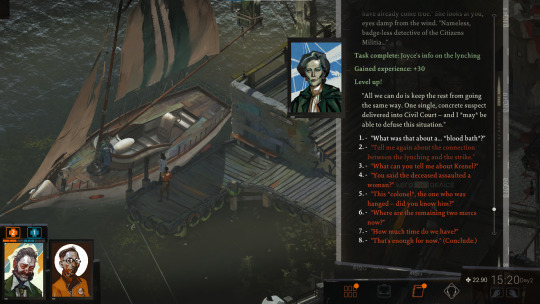
Finishing that line of dialogue opens a lot more questions on the situation.
"What was that about a... *blood bath*?"
"Tell me again about the connection between the lynching and the strike."
"What can you tell me about Krenel?"
"You said the deceased assaulted a woman?"
"This *colonel*, the one who was hanged -- did you know him?"
"Where are the remaining two mercs now?"
"How much time do we have?"
"That's enough for now." (Conclude.)
JOYCE MESSIER - "Not much. Their public resume is relatively good -- as far as private military contractors go. I believe they were once called... Downwell."
INLAND EMPIRE [Medium: Success] - Down a deep, black well.
JOYCE MESSIER - "They boast a long list of clients: Saint-Batiste, Welchman-Lorentz, Eendracht... A warning sign, however -- the operations concerned all take place in third- or fourth-world countries. Guarding facilities, escort missions, and such."
KIM KITSURAGI - "Meaning they're used to operating in war zones."
JOYCE MESSIER - "Yes. All the good conflict corridors: Supramundi, Yeesut, the Semenese islands. Countries that don't have a good record reporting *atrocious* military conduct on their soil."
"Okay. Anything else you got on them?"
JOYCE MESSIER - "Sadly -- no. Before this happened I had little interest in them. Now that I do -- I don't have the resources." She thinks.
"If you still have access to the ICP's database, you could run a better background check than I ever could. It may take some time, though..." She thinks.
KIM KITSURAGI - "Do you know a lot about the inner workings of the RCM and the ICP, ma'am?"
JOYCE MESSIER - "In my line of work it pays to do your research. I was prepared to deal with the RCM. I did *not* think I would be dealing with a group like *Krenel*."
"Could you contact the company? Tell them to call them off."
JOYCE MESSIER - "I have. And they *will*. However, these orders take time to reach what is basically a rogue unit out in the field, here. Until they do -- it's all on us."
DRAMA [Medium: Success] - She's being truthful. She is pressing them as hard as she can.
4. "You said the deceased assaulted a woman?"
JOYCE MESSIER - "Or he *didn't*." She tilts her head. "This is information passed on to me from some teenagers loitering around the canal. I cannot testify by it. "
"Who did the passing on then?"
"What did these teenagers by the canal say?"
JOYCE MESSIER - "The remaining contractors. Their *tribunal*. It's what they believe."- "The remaining contractors. Their *tribunal*. It's what they believe."
"What did these teenagers by the canal say?"
JOYCE MESSIER - "That the man was killed because he assaulted a local woman. I've asked around a bit -- this seems to be the accepted story around Martinaise."
KIM KITSURAGI - The lieutenant consults his notebook, his eyebrows knitted in concentration...
"Odd... we haven't heard any reports about an *assault* in connection with the lynching. Where did it take place? And when?"
JOYCE MESSIER - "Last Sunday night, at the Whirling-in-Rags -- the hostel by the gates. Supposedly the colonel was drunk, maybe on narcotics too."
"Either way, he's alleged to have sexually assaulted a woman. Sometime later a group of dockworkers got their hands on him…"
"And who was this woman?"
JOYCE MESSIER - "That's a good question, officer. I don't have the slightest idea. As I said, it's a rumour -- about a rumour. In any case, it's what the colonel's remaining... colleagues... believe."
INLAND EMPIRE [Easy: Success] - You'll meet her soon enough, you feel.
5. "This *colonel*, the one who was hanged -- did you know him?"
JOYCE MESSIER - "If you mean did I see him alive -- yes. But I did not *know* him."
EMPATHY [Medium: Success] - You don't know how you know -- it's not written on her face, nor in her voice -- but she had sympathy for this man.
"You liked him."
"His name was..."
JOYCE MESSIER - "*Liked* is a bit strong," she tosses her head. "He... he was the most charismatic among them. He handled all the talking. His departure left a major gap in the group's *communication skills*."
"His name was..."
JOYCE MESSIER - "Lely. His service name, a nom de guerre most likely. He wouldn't divulge his full name. Only one of them did -- a bad sign if there ever was one."
"Tell me about the others first."
"This Lely -- anything else? Nationality? How old would you say he was?"
JOYCE MESSIER - "One is a man, *Korty* they call him. A nickname as well. The other a woman, Phillis de Paule. Korty is... *the gunner,* I believe. De Paule is a radio operator."
KIM KITSURAGI - The lieutenant cuts in: "What would you say was his eye colour -- the deceased's?"
JOYCE MESSIER - She closes her eyes, trying to picture the man's face... then shakes her head...
"I can't remember." There's a pang of regret to her voice.
KIM KITSURAGI - "That's alright, ma'am. Anything else -- nationality? What would you say was his age?"
JOYCE MESSIER - "He was forty. Or fifty. It's hard to say which, he had a combat injury on his lower jaw. It made it difficult to estimate his age, or gauge his facial expressions."
KIM KITSURAGI - "What else? Nationality? Accent?"
JOYCE MESSIER - "He was Occidental I think. Light brown hair, a mix accent. Oranjese, or Messinian maybe? His injury gave him an accent all his own..."
"In a way it was humanizing. He had to learn to speak through it -- through the injury." She nods. "That's all I know, I guess. I only met him once."
6. "Where are the remaining two mercs now?"
JOYCE MESSIER - "They've gone to ground, as it were. I don't recommend seeking them out." She puts her foot on the guardwire, for balance. "For one -- they're almost certainly armed to the teeth."
"They don't have the same respect for the Revachol Citizens Militia as I do. To put it bluntly they think you're vigilantes, *ghetto savages*. It will not be a fruitful meeting."
AUTHORITY [Easy: Success] - Vigilantes? You're a professional officer of the only *legitimate* authority in Revachol.
"We still need to know where they are."
"We'll confront them *directly*."
"Okay, we'll steer clear for the moment."
JOYCE MESSIER - "You're likely to run into them eventually. When that happens, I'll be in a better position to mediate if I don't appear *involved*."
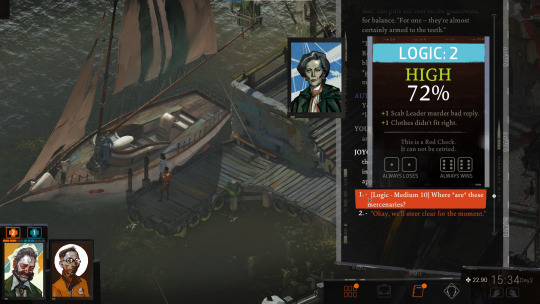
[Logic - Medium 10] Where *are* these mercenaries?
"Okay, we'll steer clear for the moment."
+1 Scab Leader murder bad reply.
+1 Clothes didn't fit right.

LOGIC [Medium: Success] - One is obviously the *Scab Leader* -- at the harbour gates. The one chanting the idiotic slogans. He's barely maintaining his disguise.
The other has a vantage point in a building South of the roundabout -- they were keeping tabs on you while you were canvassing the lorry drivers.
"One must be the goon in ill-fitting work clothes by the harbour gates. The scab leader."
"One is probably in a building overlooking the roundabout."
"I had another question for you."
JOYCE MESSIER - "That may be so." She is poised and unperturbed. "I still hope you heed my advice -- there's no need to kick the hornet's nest."
+5 XP
KIM KITSURAGI - "For all your talk of averting this catastrophe, the situation at the gates is a powder keg. Does this not bother you?"
JOYCE MESSIER - "Of course it bothers me, lieutenant, but my hands are tied. How would my employer react if it appeared I were intervening on behalf of the *Union*?"
KIM KITSURAGI - "Your concern may be appearances. Ours is keeping the peace."
2. "One is probably in a building overlooking the roundabout."
JOYCE MESSIER - "That *would* afford a good vantage point," she says. "In any case, it's practically inaccessible."
+5 XP
KIM KITSURAGI - "Where is your radio, for contacting them -- if I may ask? Do you have an ear piece?"
JOYCE MESSIER - "Heavens no, I'm not an undercover agent. There's a shortwave at the ship's wheel," she nods toward the sloop's cabin.
3. "I had another question for you."
JOYCE MESSIER - "I hope I can answer it better."
7. "How much time do we have?"
JOYCE MESSIER - "Until the executions start? Truthfully -- I don't know. It depends on their progress identifying the members of the lynch mob. And their impatience."
KIM KITSURAGI - "They don't report their progress to you?"
JOYCE MESSIER - "Not on this matter. I'm afraid they consider this a personal initiative." There is a brief silence. Seagulls squawk over the bay...
INLAND EMPIRE [Medium: Success] - Five days. Not more. Maybe sooner.
JOYCE MESSIER - "It's a matter of days, not weeks."
8. "That's enough for now." (Conclude.)
JOYCE MESSIER - "I am sorry to have been the bearer of bad news. If there is anything else I can help you with, please ask."
There is *one* other thing we can ask Joyce about while we're here.
"Now can you tell me about these tattoos?" (Show her the photo.)
JOYCE MESSIER - "Of course -- excuse my hesitation before." She reaches over the guardwire and takes the photo; holds it in her hand..."
...for about half a minute -- in silence.
KIM KITSURAGI - "It was taken with a Trigat, not long ago. This is the man's upper body. There were no more markings on his hands or legs."
Stay quiet. Observe the woman's expression.
"What do you think?"
JOYCE MESSIER - Her mouth is relaxed, the accordion lines near her mouth vanish. The pearls of her eyes move slowly on the photo's surface.
EMPATHY [Medium: Success] - She has no excess of emotions for this cadaver. Has she seen dead bodies before? It's likely.
"What do you think?"
JOYCE MESSIER - "Sorry," she breaks her concentration. "I was trying to see if I can read the web of interdependencies between these points -- the stars." She points to one on the photo paper.
"I can't. But that's how you read this story. The points themselves don't have letters, numbers, anything. Their size, location on the body and distance from each other tells you what they represent."
"Like stars in the sky?"
Say nothing.
JOYCE MESSIER - "Close," she nods. "Port cities. This is an Oranjese Map of the Waterways -- a sailor's tattoo worn by wayfarers of the Dolorian century, over 300 years ago. The sailors would mark their bodies to map their travels."
+5 XP
"What is the use of this map?"
"What travels did the dead man make?"
"Who could tell me more?"
"That's all for the tattoos. Thank you for your help."
JOYCE MESSIER - "The sailor's soul would use it to fly back home if they should die abroad. This is a sort of... contraption. To be reeled back in by. The *silver cord*, they would call it."
INLAND EMPIRE [Medium: Success] - Where is he now?
4 notes
·
View notes
Text
The Year 1817
Volume 1: Fantine; Book 3: In The Year 1817; Chapter 1: The Year 1817
1817 is the year which Louis XVIII., with a certain royal assurance which was not wanting in pride, entitled the twenty-second of his reign. It is the year in which M. Bruguière de Sorsum was celebrated. All the hairdressers’ shops, hoping for powder and the return of the royal bird, were besmeared with azure and decked with fleurs-de-lys. It was the candid time at which Count Lynch sat every Sunday as church-warden in the church-warden’s pew of Saint-Germain-des-Prés, in his costume of a peer of France, with his red ribbon and his long nose and the majesty of profile peculiar to a man who has performed a brilliant action. The brilliant action performed by M. Lynch was this: being mayor of Bordeaux, on the 12th of March, 1814, he had surrendered the city a little too promptly to M. the Duke d’Angoulême. Hence his peerage. In 1817 fashion swallowed up little boys of from four to six years of age in vast caps of morocco leather with ear-tabs resembling Esquimaux mitres. The French army was dressed in white, after the mode of the Austrian; the regiments were called legions; instead of numbers they bore the names of departments; Napoleon was at St. Helena; and since England refused him green cloth, he was having his old coats turned. In 1817 Pelligrini sang; Mademoiselle Bigottini danced; Potier reigned; Odry did not yet exist. Madame Saqui had succeeded to Forioso. There were still Prussians in France. M. Delalot was a personage. Legitimacy had just asserted itself by cutting off the hand, then the head, of Pleignier, of Carbonneau, and of Tolleron. The Prince de Talleyrand, grand chamberlain, and the Abbé Louis, appointed minister of finance, laughed as they looked at each other, with the laugh of the two augurs; both of them had celebrated, on the 14th of July, 1790, the mass of federation in the Champ de Mars; Talleyrand had said it as bishop, Louis had served it in the capacity of deacon. In 1817, in the side-alleys of this same Champ de Mars, two great cylinders of wood might have been seen lying in the rain, rotting amid the grass, painted blue, with traces of eagles and bees, from which the gilding was falling. These were the columns which two years before had upheld the Emperor’s platform in the Champ de Mai. They were blackened here and there with the scorches of the bivouac of Austrians encamped near Gros-Caillou. Two or three of these columns had disappeared in these bivouac fires, and had warmed the large hands of the Imperial troops. The Field of May had this remarkable point: that it had been held in the month of June and in the Field of March (Mars). In this year, 1817, two things were popular: the Voltaire-Touquet and the snuff-box à la Charter. The most recent Parisian sensation was the crime of Dautun, who had thrown his brother’s head into the fountain of the Flower-Market.
They had begun to feel anxious at the Naval Department, on account of the lack of news from that fatal frigate, The Medusa, which was destined to cover Chaumareix with infamy and Géricault with glory. Colonel Selves was going to Egypt to become Soliman-Pasha. The palace of Thermes, in the Rue de La Harpe, served as a shop for a cooper. On the platform of the octagonal tower of the Hotel de Cluny, the little shed of boards, which had served as an observatory to Messier, the naval astronomer under Louis XVI., was still to be seen. The Duchesse de Duras read to three or four friends her unpublished Ourika, in her boudoir furnished by X. in sky-blue satin. The N’s were scratched off the Louvre. The bridge of Austerlitz had abdicated, and was entitled the bridge of the King’s Garden [du Jardin du Roi], a double enigma, which disguised the bridge of Austerlitz and the Jardin des Plantes at one stroke. Louis XVIII., much preoccupied while annotating Horace with the corner of his finger-nail, heroes who have become emperors, and makers of wooden shoes who have become dauphins, had two anxieties,—Napoleon and Mathurin Bruneau. The French Academy had given for its prize subject, The Happiness procured through Study. M. Bellart was officially eloquent. In his shadow could be seen germinating that future advocate-general of Broë, dedicated to the sarcasms of Paul-Louis Courier. There was a false Chateaubriand, named Marchangy, in the interim, until there should be a false Marchangy, named d’Arlincourt. Claire d’Albe and Malek-Adel were masterpieces; Madame Cottin was proclaimed the chief writer of the epoch. The Institute had the academician, Napoleon Bonaparte, stricken from its list of members. A royal ordinance erected Angoulême into a naval school; for the Duc d’Angoulême, being lord high admiral, it was evident that the city of Angoulême had all the qualities of a seaport; otherwise the monarchical principle would have received a wound. In the Council of Ministers the question was agitated whether vignettes representing slack-rope performances, which adorned Franconi’s advertising posters, and which attracted throngs of street urchins, should be tolerated. M. Paër, the author of Agnese, a good sort of fellow, with a square face and a wart on his cheek, directed the little private concerts of the Marquise de Sasenaye in the Rue Ville l’Évêque. All the young girls were singing the Hermit of Saint-Avelle, with words by Edmond Géraud. The Yellow Dwarf was transferred into Mirror. The Café Lemblin stood up for the Emperor, against the Café Valois, which upheld the Bourbons. The Duc de Berri, already surveyed from the shadow by Louvel, had just been married to a princess of Sicily. Madame de Staël had died a year previously. The body-guard hissed Mademoiselle Mars. The grand newspapers were all very small. Their form was restricted, but their liberty was great. The Constitutionnel was constitutional. La Minerve called Chateaubriand Chateaubriant. That t made the good middle-class people laugh heartily at the expense of the great writer. In journals which sold themselves, prostituted journalists, insulted the exiles of 1815.
David had no longer any talent, Arnault had no longer any wit, Carnot was no longer honest, Soult had won no battles; it is true that Napoleon had no longer any genius. No one is ignorant of the fact that letters sent to an exile by post very rarely reached him, as the police made it their religious duty to intercept them. This is no new fact; Descartes complained of it in his exile. Now David, having, in a Belgian publication, shown some displeasure at not receiving letters which had been written to him, it struck the royalist journals as amusing; and they derided the prescribed man well on this occasion. What separated two men more than an abyss was to say, the regicides, or to say the voters; to say the enemies, or to say the allies; to say Napoleon, or to say Buonaparte. All sensible people were agreed that the era of revolution had been closed forever by King Louis XVIII., surnamed “The Immortal Author of the Charter.” On the platform of the Pont-Neuf, the word Redivivus was carved on the pedestal that awaited the statue of Henry IV. M. Piet, in the Rue Thérèse, No. 4, was making the rough draft of his privy assembly to consolidate the monarchy. The leaders of the Right said at grave conjunctures, “We must write to Bacot.” MM. Canuel, O’Mahoney, and De Chappedelaine were preparing the sketch, to some extent with Monsieur’s approval, of what was to become later on “The Conspiracy of the Bord de l’Eau”—of the waterside. L’Épingle Noire was already plotting in his own quarter. Delaverderie was conferring with Trogoff. M. Decazes, who was liberal to a degree, reigned. Chateaubriand stood every morning at his window at No. 27 Rue Saint-Dominique, clad in footed trousers, and slippers, with a madras kerchief knotted over his gray hair, with his eyes fixed on a mirror, a complete set of dentist’s instruments spread out before him, cleaning his teeth, which were charming, while he dictated The Monarchy according to the Charter to M. Pilorge, his secretary. Criticism, assuming an authoritative tone, preferred Lafon to Talma. M. de Féletez signed himself A.; M. Hoffmann signed himself Z. Charles Nodier wrote Thérèse Aubert. Divorce was abolished. Lyceums called themselves colleges. The collegians, decorated on the collar with a golden fleur-de-lys, fought each other apropos of the King of Rome. The counter-police of the château had denounced to her Royal Highness Madame, the portrait, everywhere exhibited, of M. the Duc d’Orléans, who made a better appearance in his uniform of a colonel-general of hussars than M. the Duc de Berri, in his uniform of colonel-general of dragoons—a serious inconvenience. The city of Paris was having the dome of the Invalides regilded at its own expense. Serious men asked themselves what M. de Trinquelague would do on such or such an occasion; M. Clausel de Montals differed on divers points from M. Clausel de Coussergues; M. de Salaberry was not satisfied. The comedian Picard, who belonged to the Academy, which the comedian Molière had not been able to do, had The Two Philiberts played at the Odéon, upon whose pediment the removal of the letters still allowed THEATRE OF THE EMPRESS to be plainly read. People took part for or against Cugnet de Montarlot. Fabvier was factious; Bavoux was revolutionary. The Liberal, Pélicier, published an edition of Voltaire, with the following title: Works of Voltaire, of the French Academy. “That will attract purchasers,” said the ingenious editor. The general opinion was that M. Charles Loyson would be the genius of the century; envy was beginning to gnaw at him—a sign of glory; and this verse was composed on him:—
“Even when Loyson steals, one feels that he has paws.”
As Cardinal Fesch refused to resign, M. de Pins, Archbishop of Amasie, administered the diocese of Lyons. The quarrel over the valley of Dappes was begun between Switzerland and France by a memoir from Captain, afterwards General Dufour. Saint-Simon, ignored, was erecting his sublime dream. There was a celebrated Fourier at the Academy of Science, whom posterity has forgotten; and in some garret an obscure Fourier, whom the future will recall. Lord Byron was beginning to make his mark; a note to a poem by Millevoye introduced him to France in these terms: a certain Lord Baron. David d’Angers was trying to work in marble. The Abbé Caron was speaking, in terms of praise, to a private gathering of seminarists in the blind alley of Feuillantines, of an unknown priest, named Félicité-Robert, who, at a latter date, became Lamennais. A thing which smoked and clattered on the Seine with the noise of a swimming dog went and came beneath the windows of the Tuileries, from the Pont Royal to the Pont Louis XV.; it was a piece of mechanism which was not good for much; a sort of plaything, the idle dream of a dream-ridden inventor; an utopia—a steamboat. The Parisians stared indifferently at this useless thing. M. de Vaublanc, the reformer of the Institute by a coup d’état, the distinguished author of numerous academicians, ordinances, and batches of members, after having created them, could not succeed in becoming one himself. The Faubourg Saint-Germain and the pavilion de Marsan wished to have M. Delaveau for prefect of police, on account of his piety. Dupuytren and Récamier entered into a quarrel in the amphitheatre of the School of Medicine, and threatened each other with their fists on the subject of the divinity of Jesus Christ. Cuvier, with one eye on Genesis and the other on nature, tried to please bigoted reaction by reconciling fossils with texts and by making mastodons flatter Moses.
M. François de Neufchâteau, the praiseworthy cultivator of the memory of Parmentier, made a thousand efforts to have pomme de terre [potato] pronounced parmentière, and succeeded therein not at all. The Abbé Grégoire, ex-bishop, ex-conventionary, ex-senator, had passed, in the royalist polemics, to the state of “Infamous Grégoire.” The locution of which we have made use—passed to the state of—has been condemned as a neologism by M. Royer Collard. Under the third arch of the Pont de Jéna, the new stone with which, the two years previously, the mining aperture made by Blücher to blow up the bridge had been stopped up, was still recognizable on account of its whiteness. Justice summoned to its bar a man who, on seeing the Comte d’Artois enter Notre Dame, had said aloud: “Sapristi! I regret the time when I saw Bonaparte and Talma enter the Bel Sauvage, arm in arm.” A seditious utterance. Six months in prison. Traitors showed themselves unbuttoned; men who had gone over to the enemy on the eve of battle made no secret of their recompense, and strutted immodestly in the light of day, in the cynicism of riches and dignities; deserters from Ligny and Quatre-Bras, in the brazenness of their well-paid turpitude, exhibited their devotion to the monarchy in the most barefaced manner.
This is what floats up confusedly, pell-mell, for the year 1817, and is now forgotten. History neglects nearly all these particulars, and cannot do otherwise; the infinity would overwhelm it. Nevertheless, these details, which are wrongly called trivial,—there are no trivial facts in humanity, nor little leaves in vegetation,—are useful. It is of the physiognomy of the years that the physiognomy of the centuries is composed. In this year of 1817 four young Parisians arranged “a fine farce.”
13 notes
·
View notes
Text
When a duel makes you more famous than your Naval career
Rear Admiral James Macnamara (1768-1826) earned a reputation as a fearless naval officer, but it was not so much his seamanship or courage that ensured his name was remembered, but his Newfoundland dog.
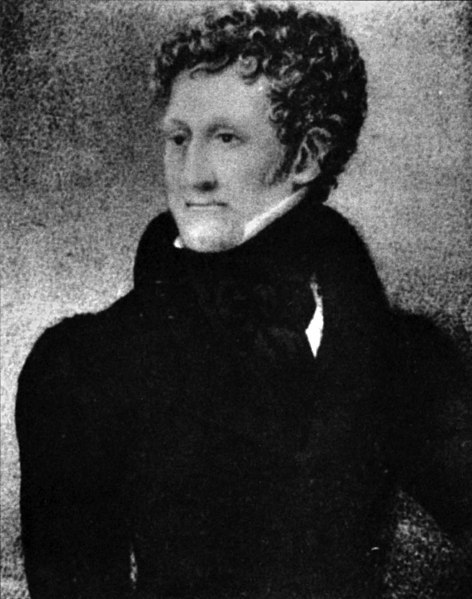
Rear Admiral James Macnamara, by unknown, c. 1810 (x)
On 6 April 1803, Macnamara fought a duel at Primrose Hill, London, with Colonel Robert Montgomery, an officer in the Life Guards who also owned a dog of the same breed. The quarrel resulted from a fight between the two animals in Hyde Park that had taken place on the same day. In the duel, which was fought with pistols, both men were wounded, Montgomery fatally. In the subsequent trial for manslaughter, Macnamara defended himself by saying that the provocation and insult came from Montgomery. He called a number of famous naval figures, including Viscount Hood, Admiral Jervis and Admiral Nelson, who testified that Macnamara was the opposite of quarrelsome. The jury deliberated for 20 minutes and then found him not guilty.
How did he manage to mobilise so many important people to testify in his favour? Now even though he made a name for himself because of the duel, he was in fact a man who served under the aforementioned gentlemen. He himself came from a naval family and served in the last years of the American War of Independence in the East Indies, where he was engaged in the Battle of Cuddalore. During this time he was awarded the rank of acting lieutenant, but was subsequently demoted back to ensign for failing the examination.
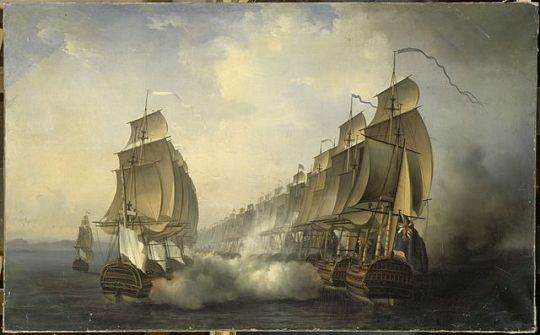
The Battle of Cuddalore 20 June 1783 (x)
He returned to naval service during the Spanish and Russian Rearmament and served with Lord Hood aboard HMS Victory at the outbreak of the French Revolutionary Wars. He saw action in the Mediterranean and was eventually promoted to his own command. He was a successful frigate captain, serving with Nelson and making several hard-fought captures. He ended his service as a captain in the Mediterranean with a stint in the Battle of Cape St Vincent and later served in the West Indies before the Peace of Amiens.
It was during this brief period of peace that the duel occurred and he was able to appeal to his superiors who gave him a good report card and he was thus acquitted.
But in May 1803 Macnamara offered his services to the Admiralty but no employment was forthcoming, except in March 1804 when he was offered a post with the Irish Sea Fencibles, which he declined. He was openly punished in this way for his misdemeanour.

Battle off Cape St. Vincent,1797 by William Adolphus Knell (1801- 1875) (x)
In July 1804, a black servant named Dixon won a case against Macnamara at Kings Bench for assault after being pushed against the railings in Cavendish Square and insulted as an "impudent black dog" in response to Macnamara's favourable comment about the appearance of a woman with whom Dixon had been conversing. On 25 February 1805, Macnamara was again on trial before Lord Ellenborough, the Lord Chief Justice of the King's Bench, over a dispute with Dixon's employer, a sub-lieutenant of the Life Guards named Marcus Henry Lynch, whom Macnamara had called a "knave" and threatened to "crack the whip" for refusing to dismiss the servant. So much for a non belligerent and good man. However, the proceedings were discontinued because the parties were supposed to reach an out-of-court settlement.
He managed to secure a command in the North Sea during the Napoleonic Wars 1806 and served from 1808 on in the Baltic Fleet under Admiral Sir Richard Goodwin Keats. He stayed in service until 1814 and was even made Rear Admiral on 4 June 1814 even though he no longer held a command. He died in Bristol on 15 January 1826, aged only 57.
#naval history#naval anecdote#persons of the navy#rear admiral james macnamara#1768-1826#age of sail
27 notes
·
View notes
Text
//I found Chopper One on Crackle. In brief, it was a very short lived TV program from 1974, staring Dirk Benedict and Jim McMullan as California police officers who work out of a helicopter. It’s actually quite enjoyable....
.....but now I’ve fully accepted the mental headcanon that Gil Foley (Benedict’s character) is a decent, hard-working helicopter-piloting police officer in LA who deeply, utterly, and absolutely loathes Templeton Peck’s existence because everyone keeps mistaking him for Peck. Gil’s been stopped, harassed, and arrested by Colonel Lynch several times. He’s been yelled at by random strangers for stealing things/breaking into their buildings/conning them out of valuables, and he’s had a few women throw drinks in his face for vanishing/standing them up.
None of which Gil has done, of course.
There may have also been a time or two when a colossal mix-up occurred and he and Face accidently swapped places, so Gil found himself temporarily kidnapped by the A-Team.
Needless to say, it’s a massive headache for the cop and Gil will heave a massive sigh of relief the day the A-Team is finally rounded up.
#We're Just In Here Staying Out of Trouble (OOC)#A-Team#Chopper One#Dirk Benedict#Gil Foley#Templeton 'Face Man' Peck
13 notes
·
View notes
Text
Incorrect A-team Quotes
Colonel Lynch: how long does a deodorant stick usually last you?
Murdock: usually only 3 or 4 bites
Lynch: *clearly disturbed* why do I even bother????
20 notes
·
View notes
Conversation
Lynch: What sort of half-baked colonel do you take me for?
Hannibal: Do you really want me to answer that?
Lynch: No!
6 notes
·
View notes
Text
Over the past few weeks, I have been consuming a steady diet of period shows and movies, most of them centered on 19th C America. Glory (1990), 12 Years a Slave (2012), and The Underground Railroad (2021) are a few examples. Most of these stories feature villains who are racist White men. This has given me an opportunity to think in particular ways about how villains work and what makes them effective and also put me in an interesting frame of mind for my yearly The Patriot rewatch.
What all of these racist White villains have in common is not just their brutal actions but their conviction that Black people are intrinsically inferior to and less human than themselves. This is not an individual belief each respective villain holds; it is the foundation of the chattel slavery-based culture in which they live. Edwin Epps in 12 Years a Slave has a wife who pressures him to be even more brutal than he is and neighboring planters who, while they may treat enslaved people with less overt cruelty than Epps, do not censure his practices. Due to this system, the odds are stacked in Epps’ favor to such an extent that protagonist Solomon Northrop is only able to get away in the end because a White friend comes from New York to prove Northrop is who he says.
Colonel Tavington, on the other hand, simply wants to win the war at any cost. His goal is to stop the South Carolina militia from preventing the British Army’s progress north, and he has no problem will murdering civilians in service of that goal. He has no particular hatred of women, children, and old Patriots, but he can find them. They are defenseless against the Green Dragoons because, well, the dragoons are heavily armed, but the movie’s protagonist is not. Tavington tells General O’Hara that Benjamin Martin and his militia have killed as many as eighteen British officers in two months. Cornwallis has tasked Tavington with finding the militia; how hard would it be for them to let him?
While Epps’ villainy relies on the support system of White supremacy to make it effective, Tavington’s relies almost wholly on his personality and the shock value of his actions. The most shocking aspect of violence against Black people in 12 Years, ironically, is how mundane it is. Just before he goes to the Epps plantation, a lynch mob strings Northrop up from a tree branch, his toes barely touching the ground. Even after the overseer stops them, he leaves Northrop there for hours while everyone goes about their daily activities around him. That Epps administers more violence than others is owing to Northrop spending more time with him than anything else. There are many White men, and one White woman, inflicting such violence, and bystanders simply ignore it. What else can they do?
What is actually shocking about Tavington’s violence against civilians is how many times the militiamen, and the audience by proxy, are shocked by it. Tavington murders Thomas five minutes into his first appearance in the movie. An hour and a half of run time and many months of story time later, after Tavington and the dragoons have burned seven militiamen’s homes and murdered the inhabitants, Martin sends the militia home, marries off his son, sends his new inlaws home to conduct business as usual, and you won’t believe what happens next! Even Tavington draws attention to how expected his propensity for violence should be at this point after locking Martin’s in-laws and their neighbors in the town’s church. When his subordinate informs him that the regiment is ready to fire the town, Tavington is confused by his confusion. “The town? Burn the church.” Honestly, Wilkins. Get your head in the game.
If what makes villains effective is simply wrecking havoc on the lives of the protagonists and their loved ones, then Epps and Tavington both fit the bill. But I find that to be truly effective as a villain, a characters’ violence has to be supported by something other than their own individual whims. Epps is able to commit so much violence against enslaved people, including the protagonist, because his society supports the beliefs that underpin his actions. Tavington is able to commit so much violence against civilians because the protagonist cannot be bothered to stop him. If what is most chilling about 12 Years is how little value Black people had as human beings in the antebellum South, what should be most chilling about The Patriot is how little value even White women and children, who make up the bulk of Tavington’s victims, had in Colonial America.
#the patriot#12 years a slave#edwin epps#william tavington#steve mcqueen#roland emmerich#of course there is the question of intention#mcqueen is making A Point about the horrors of chattel slavery#emmerich uses women and children as little more than props#but that is a whole other post
6 notes
·
View notes
Text
MARIKO MURAKAMI
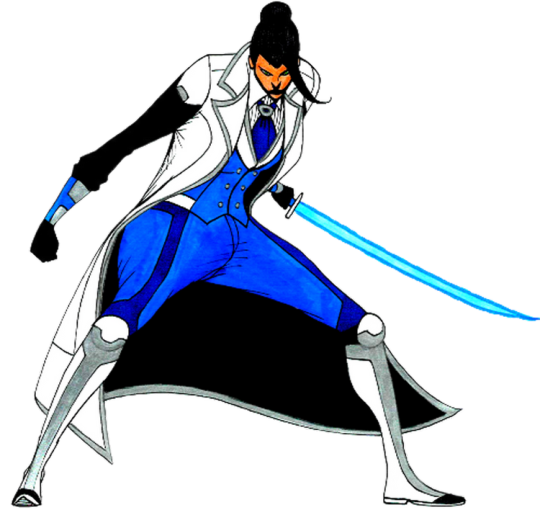


A member of The Murakami family, Mariko was the eldest sister. After her family left the upper-class level of New Tokyo, they were constantly harassed by the commoners due to their noble lineage. A few months later, their mother died, and the commoners lynched their house. On that day, Himiko snapped and swore vengeance against the world. After killing their father, Himiko was adopted by a powerful Yakuza mob and left Mariko behind. Mariko was eventually found by a military colonel who essentially became her father through most of her life. He showed her as much love and care as she needed. During their time together, he taught her how to defend herself. When she was finally of age, Mariko enlisted in the military, quickly rising through the ranks until she was a commander. To combat the new supervillain threats, a task force was assembled to help. Due to her talents as a leader, Mariko was appointed as the leader. Their first mission was to help track down The Crow, who was on the run after blowing up Belbridge Tower. The other person chasing him was Lady Lotus, who wanted revenge after Crow tried to kill her. All parties converged on Crow's hideout in Guatemala. Eventually, Mariko, Ryuko, and Lady Lotus confronted him in the parlor, where she and her sister had a family reunion. Unfortunately, it turned sour when they started fighting, allowing Crow to escape and flee to Las Vegas, where he took over Prankster's old casino from Season 3. After Mariko, Lotus, and Ryuko caught up to Crow, he trapped them in the videogame maze below the casino. While trapped, Mariko and Himiko had time to talk to each other. After working together to escape the maze, they managed to track Crow back to Harking City and captured him. Unfortunately, their partnership ended when Himiko betrayed her and tried to kill Crow, forcing Mariko to incapacitate her and send her to prison. No matter how much it hurt, she knew this was right. She soon became a trusted ally of the superhero community and one of Ryuko's best friends.
#original story#original art#original character#japanese superheroes#homosexuality#lgbtq#military#tragic hero
1 note
·
View note
Text
criterion collection
#2 Seven Samurai dir. Akira Kurosawa
#6 Beauty and the Beast dir. Jean Cocteau
#10 Walkabout dir. Nicholas Roeg
#17 Salo or the 120 Days of Sodom dir. Pier Paolo Pasolini
#29 Picnic at Hanging Rock dir. Peter Weir
#31 Great Expectations dir. David Lean
#34 Andrei Rublev dir. Andrei Tarkovsky
#51 Brazil dir. Terry Gilliam
#62 The Passion of Joan of Arc dir. Carl Th. Dreyer
#78 The Bank Dick dir. W.C. Fields
#90 Kwaidan dir. Masaki Kobayashi
#102 The Discreet Charm of the Bourgeoisie dir. Luis Bunuel
#105 Spartacus dir. Stanley Kubrick
#134 Haxan dir. Benjamin Christensen
#157 The Royal Tenenbaums dir. Wes Anderson
#164 Solaris dir. Andrei Tarkovsky
#165 Man Bites Dog dir. Remy Belvaux, Andre Bonzel, & Benoit Poelvoorde
#175 Fear and Loathing in Las Vegas dir. Terry Gilliam
#182 Straw Dogs dir. Sam Peckinpah
#200 The Honeymoon Killers dir. Leonard Kastle
#226 Onibaba dir. Kaneto Shindo
#259 Fat Girl dir. Catherine Breillat
#260 Eyes Without a Face dir. Georges Franju
#277 My Own Private Idaho dir. Gus Van Sant
#300 The Life Aquatic with Steve Zissou dir. Wes Anderson
#332 Viridiana dir. Luis Bunuel
#335 Elevator to the Gallows dir. Louis Malle
#389 WR: Mysteries of the Organism dir. Dusan Makavajev
#390 Sweet Movie dir. Dusan Makavajev
#476 The Curious Case of Benjamin Button dir. David Fincher
#483 Repulsion dir. Roman Polanski
#539 House dir. Nobuhiko Obayashi
#540 The Darjeeling Limited dir. Wes Anderson
#542 Antichrist dir. Lars Von Trier
#631 Trilogy of Life dir. Pier Paolo Pasolini
- #632 The Decameron
- #633 The Canterbury Tales
- #634 Arabian Nights
#635 Weekend dir. Jean-Luc Godard
#711 A Hard Day's Night dir. Richard Lester
#725 Eraserhead dir. David Lynch
#779 Mullholland Dr. dir. David Lynch
#790 Lady Snowblood dir. Toshiya Fujita
#791 Lady Snowblood: Love Song of Vengeance dir. Toshiya Fujita
#812 The Player dir. Robert Altman
#888 Stalker dir. Andrei Tarkovsky
#894 The Piano Teacher dir. Michael Haneke
#898 Twin Peaks: Fire Walk With Me dir. David Lynch
#975 Funny Games dir. Michael Haneke
#1000 Godzilla: The Showa-Era Films, 1954-1975
#1013 Teorema dir. Pier Paolo Pasolini
#1051 The Elephant Man dir. David Lynch
#1084 Mirror dir. Andrei Tarkovsky
#1131 Pink Flamingos dir. John Waters
miscellaneous:
Ingmar Bergman's Cinema
The Life and Death of Colonel Blimp dir. Michael Powell & Emeric Pressburger
#dvd collection#criterion collection#cult films#david lynch#pier paolo pasolini#andrei tarkovsky#godzilla#ingmar bergman#michael haneke#wes anderson
8 notes
·
View notes
Photo

The Ninth Configuration has been released on Blu-ray via Scream Factory. Limited to 1,500, it’s available for $26.98 exclusively from Shout Factory. The 1980 psychological horror-drama is also known as Twinkle, Twinkle, Killer Kane.
The Exorcist writer William Peter Blatty makes his directorial debut from his own script, based on his 1978 novel. Stacy Keach, Scott Wilson, Jason Miller, Ed Flanders, Neville Brand, George DiCenzo, Moses Gunn, Robert Loggia, Joe Spinell, Alejandro Rey, and Tom Atkins star.
The Ninth Configuration has been newly scanned in 2K from the original camera negative. Special features are listed below.
Special features:
Audio commentary by writer-director William Peter Blatty
Interview with writer-director William Peter Blatty
Interview with actor Stacy Keach
Interview with actor Stephen Powers
Interview with production designer William Malley and art director J. Dennis Washington
Interview with composer Barry De Vorzon
The Party Behind the Curtain – Interviews with writer-director William Peter Blatty and actors Tom Atkins, Jason Miller, and Richard Lynch
Featurette with film critic Mark Kermode
Deleted scenes and outtakes
In the final days of the Vietnam War, a remote castle in the Pacific Northwest serves as a mental hospital for troubled soldiers scarred by their experiences. Isolated and all-but-forgotten, the inmates are running the asylum ... until Colonel Kane (Stacy Keach) arrives to take over their treatment. Taking a special interest in one of his new patients – former astronaut Billy Cutshaw (Scott Wilson) who inexplicably aborted his mission to the Moon during its final countdown – Kane seeks answers to the mysteries of the breakdown. But as his time in the castle goes on, the riddles in Kane's own mind reveal themselves in shocking and violent ways.
#the ninth configuration#william peter blatty#horror#80s horror#1980s horror#scream factory#shout factory#dvd#gift#stacy keach#scott wilson#jason miller#tom atkins#joe spinell#ed flanders
15 notes
·
View notes
Text
Michael Jackson reportedly loved to watch the movie Fantasia in the plush scarlet-covered seats in his newly renovated Hayvenhurst home. He also enjoyed watching Charlie Chaplin, The Three Stooges, Invitation to the Dance, Royal Wedding, as well as Katharine Hepburn's Little Women and Bringing Up Baby. Other Hepburn films he liked were Adam's Rib, Love Among the Ruins, and The African Queen. He didn't like Suddenly, Last Summer.
He was reported to have watched David Lynch's The Elephant Man in the early 80s when it was released, and the TV mini-series Roots by Alex Haley.
Michael had long been impressed by shows such as On the Town and West Side Story, saying he admired Hermes Pan, who choreographed some of Fred Astaire's films.
As Sandy Duncan told People Extra: "You could put [Fred Astaire] behind a scrim and see his silhouette and you'd know who he was."
Jackson loved Shirley Temple films too. He'd seen all of her films, including Wee Willie Winkie, The Little Colonel, and Baby Burlesks.
Jackson wanted to be in movies, and was one of the only huge music stars to surround himself with figures of Old Hollywood.
#mj#michael jackson#movie#movies#katharine hepburn#fred astaire#david lynch#hermes pan#shirley temple
1 note
·
View note